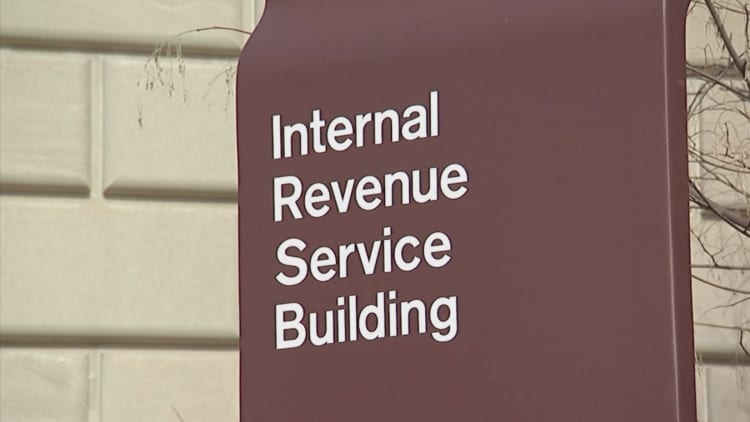
Coming into a modest windfall is rare. But for some, it does happen once a year — in the form of a tax refund.
The IRS issued 111.9 million refunds in 2017, averaging $2,895 apiece.
But forget about blowing all that newfound dough on a night out on the town. This year, more Americans plan to stash the cash they get back from Uncle Sam.
Of those who expect to receive money back from the government, 43 percent said they will put the funds in a savings account, up from 41 percent last year, according to a report by GoBankingRates.
Another one-third of Americans expecting a refund said they'll use the extra money to pay down debt, down slightly from a year earlier. Just 1 in 10 said the cash would go toward a vacation, and only about 5 percent planned to splurge or make a major purchase.
About one-third of those polled don't expect to get a refund, GoBankingRates said. (If you're in this boat, don't despair; this may mean you're doing a good job of managing your withholdings and quarterly tax payments throughout the year.)
Depending on your financial situation, a refund offers a rare opportunity to improve your financial standing, according to Experian. Here are the credit reporting agency's top tips for how to put this money to good use:
1. Pay down debt
It doesn't sound sexy, but knock off a chunk of credit card debt if you can. Because of the particularly high interest rates that many credit cards carry, financial advisors recommend focusing on paying off this debt before other types of loans. Here are a few proven strategies for getting started.
2. Save money in an emergency fund
Nearly one-quarter of all Americans have zero dollars in an emergency fund, according to a report by Bankrate.com. Greg McBride, Bankrate's chief financial analyst, recommends stashing at least a six-month cushion to cover anything from a dental bill to a car repair — but more if you are the sole breadwinner in your family or in business for yourself.
3. Buy something
If you've been saving throughout the year, treat yourself to a trip or other reasonable indulgence so you don't feel deprived. It might just be the break you need. Just don't blow it all on a night out; it's OK to splurge on yourself and your loved ones, but all things in moderation.
More from Personal Finance:
10 tax changes for 2018 you need to know
Tax season begins. Here's what you need to do
How to step up your 2018 tax savings


